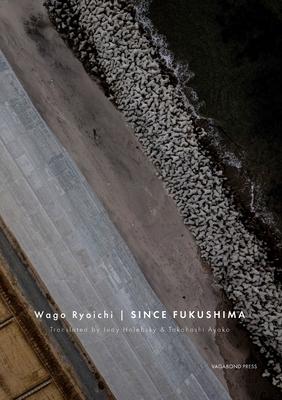In the days following the earthquake and tsunami that hit Japan in March 2011, poet Wago Ryoichi started a twitter feed. Living just 80 km away from the failed nuclear reactor, he sheltered in his apartment and bared witness to the unfolding devastation. This collection begins with excerpts from those original tweets and follows ten years of Wago's writing. The poems consider not just the human toll of the disaster but place the devastation of the land, the animals, and ways of life of Fukushima Prefecture on equal footing.
Wago Ryoichi is a poet and high school Japanese literature teacher from Fukushima city, Japan. In 2017, the French translation of his book, Pebbles of Poetry, won the Nunc Magazine award for best foreign-language poetry collection. Since March 2011, his writing has focused on the ecological devastation of the areas affected by the Tohoku earthquake, tsunami and the nuclear meltdown of the Fukushima Daiichi power station. His poem Abandoned Fukushima is sung by choirs across Japan as a prayer for hope and renewal.
Ayako Takahashi and Judy Halebsky work collaboratively to translate poetry between English and Japanese. Ayako Takahashi is a scholar and translator teaching at University of Hyogo in Japan. Her most recent publication is a book of scholarship titled, Reading Gary Snyder. She has published translations of many American poets such as Jane Hirshfield, Anne Waldman, and Joanne Kyger, among others. Judy Halebsky is a poet and translator. She is the author of Spring and a Thousand Years (Unabridged) (University of Arkansas Press, 2020), Tree Line (New Issues 2014) and Sky=Empty, winner of the New Issue Prize (New Issues, 2010). She is a professor of Literature and Language and director of the MFA in Creative Writing program at Dominican University of California. Ayako and Judy have been working together for a number of years and have previously published articles in Japan on the development of English language haiku.
Author: 和合亮一
Title: フクシマ以降
2021年3月、地震と津波が日本を襲った日から数日後、詩人の和合亮一はツイッターを始めた。事故のあった原子炉から80キロ離れたところに暮らしていた和合は、彼のアパートに避難し、進行する放射能汚染を間近で見た。本選詩集は、ツイッター(後の『詩の礫』)の抜粋から始まり、その後10年の和合の作品を収めている。詩は災害の人的被害だけでなく、福島の土地、動物、生活の在り様を対等な視点でとらえている。つまり、避難区域に取り残された牛の立場で書かれた詩、放射能レベルを下げるために掘られ、地中深く埋められた土地の立場で描かれた詩、福島に残った人々、避難し帰宅できない人々の視点の詩である。本選詩集には福島第一原発事故直後のツイートを取り入れた震災10年後に書かれた一連の詩編も収められている。主題は重大な内容でありながら、詩にはユーモアと軽みがないわけではない。和合は世界への慈愛、そして美への渇望の立場から詩を書き続けている。
和合亮一は詩人であり、福島県の国語の高校教師である。数々の詩集を出版しているが、和合の作品は2011年以来東日本大震災、津波、福島第一原子力
